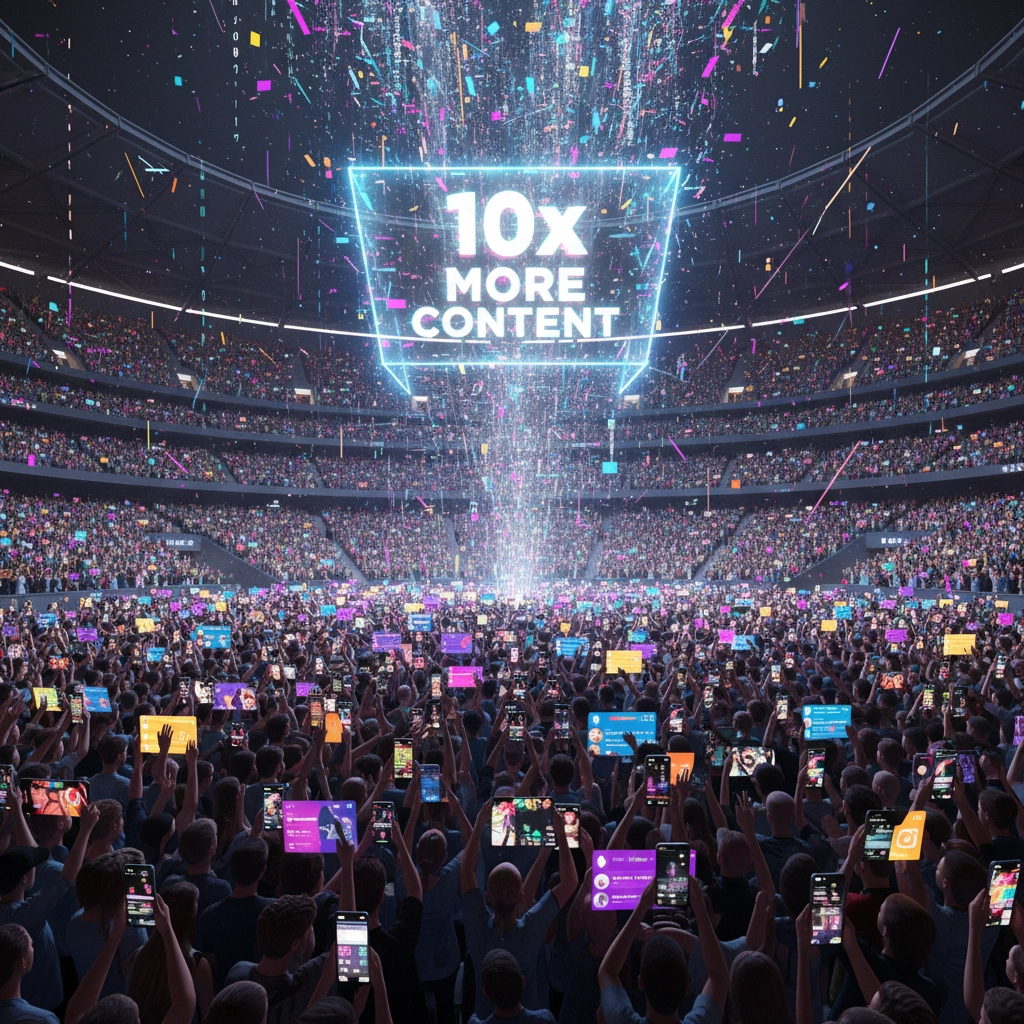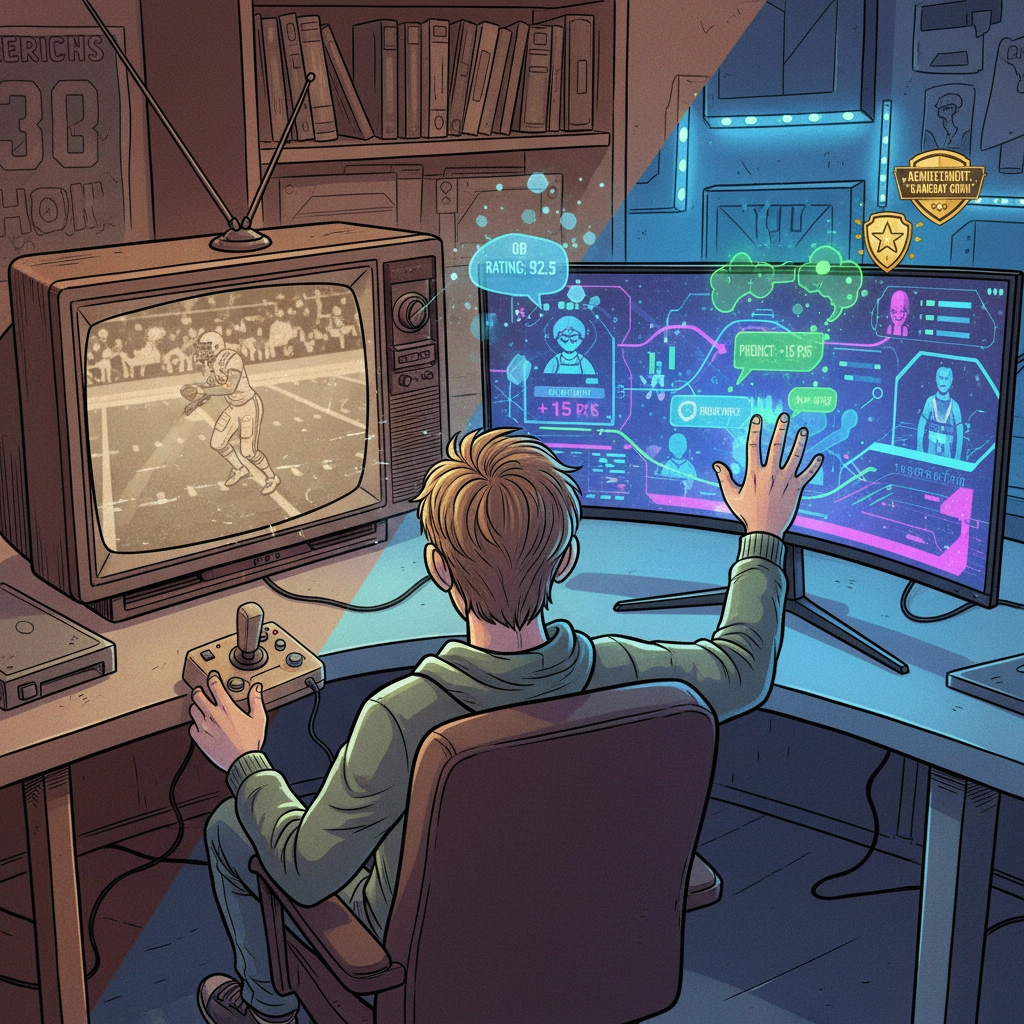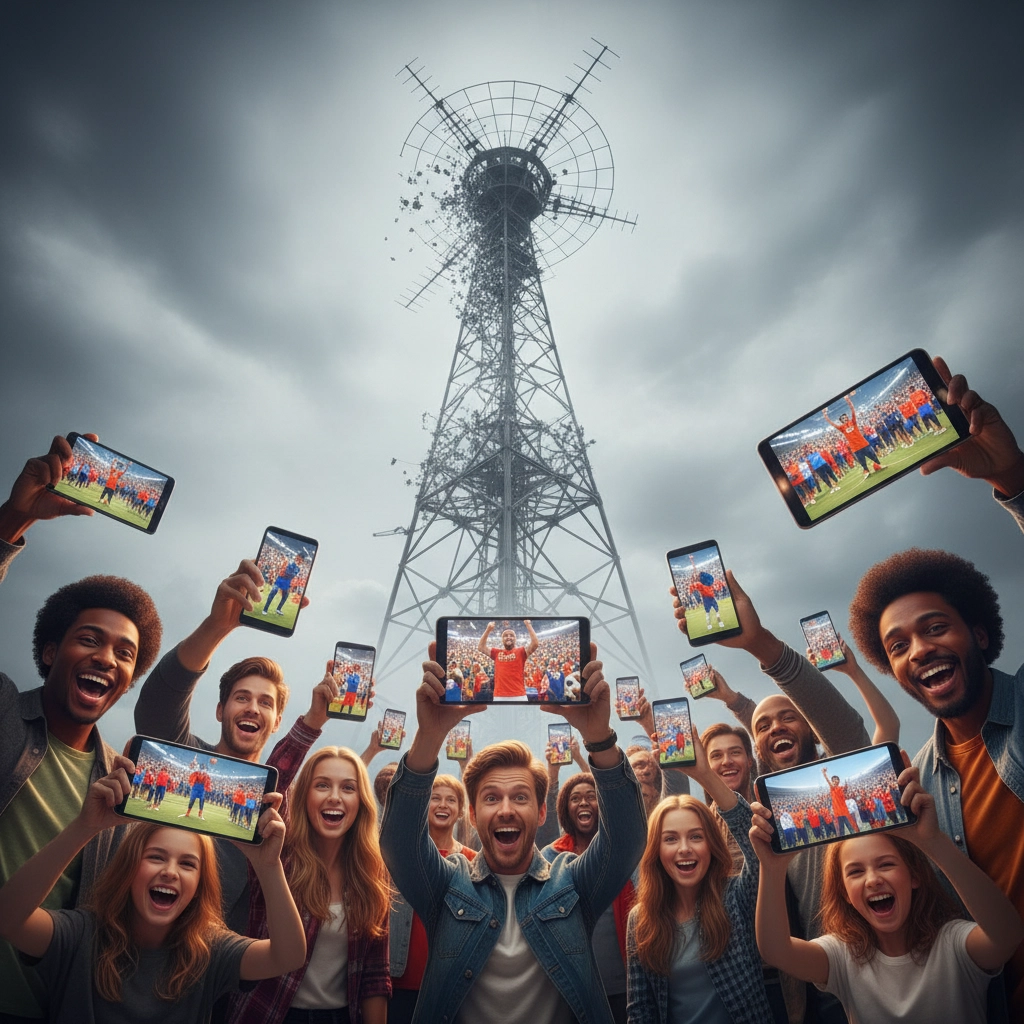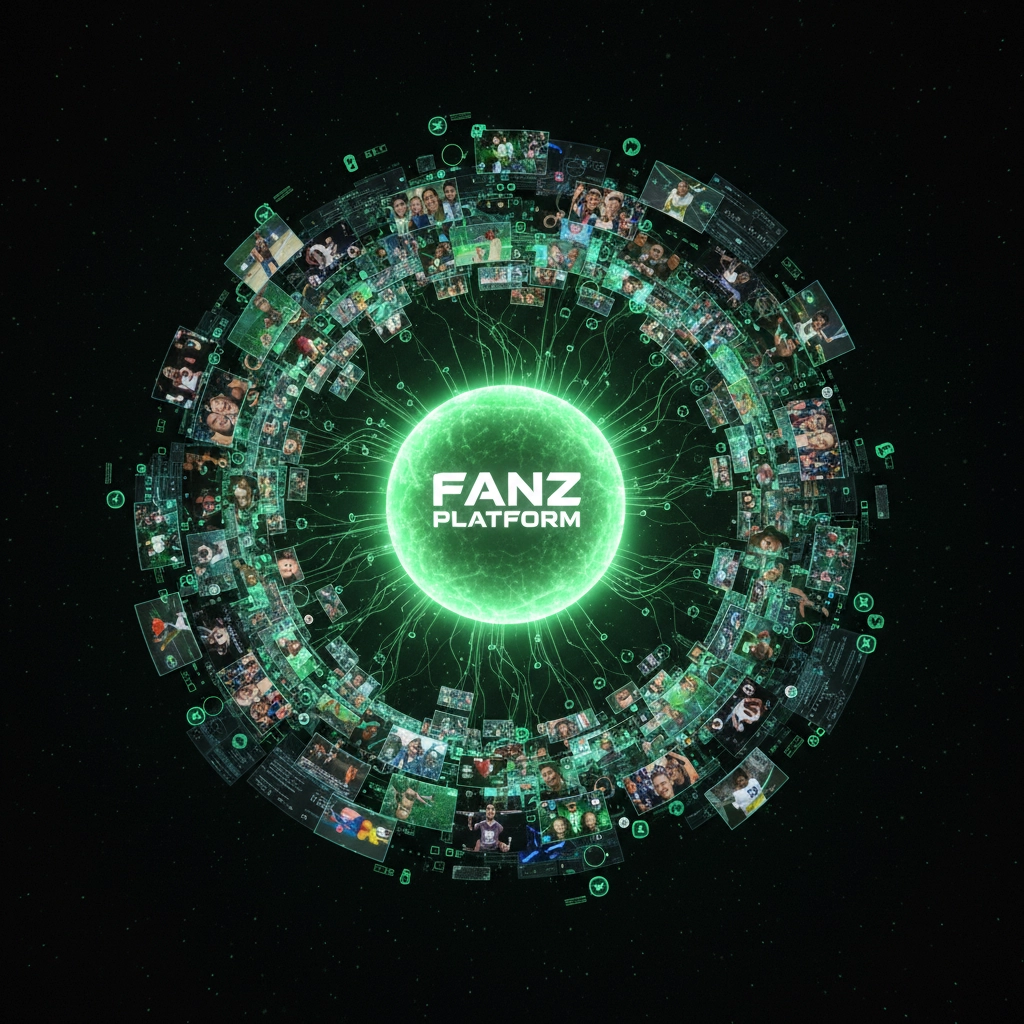The sports content landscape has undergone a fundamental transformation. Traditional media outlets no longer hold exclusive control over sports narratives. User-generated content platforms have democratized sports storytelling, enabling fans to become content creators and shape the conversations around their favorite teams and athletes.
The Numbers Tell the Story
User-generated content now produces approximately 10 times more video content than official sports league channels. This shift represents more than just increased volume. It demonstrates a fundamental change in how sports content is created, distributed, and consumed.
Research indicates that 93% of marketers report consumers trust user-generated content significantly more than brand-generated content. This trust differential has created new opportunities for authentic fan engagement that traditional marketing approaches struggle to achieve.

The demographic data reveals specific consumption patterns. Millennials almost exclusively stream sports on mobile devices while simultaneously engaging with social media and user-generated videos. Meanwhile, 85% of sports fans see value in integrating AI and other technologies into their sports experience, yet they simultaneously demand authentic, human-centered storytelling.
Platform Dynamics and Creator Economics
Several digital platforms have emerged as primary venues for fan-to-creator transitions. TikTok and Instagram serve as the main arenas where athletes showcase personalities and build direct audience connections. These platforms have fundamentally altered the relationship between sports figures and their audiences.
FC Barcelona exemplifies this trend with over 57 million TikTok followers. The club shares exclusive behind-the-scenes footage including practice sessions, locker room celebrations, and warm-up routines unavailable through traditional broadcasting channels. Formula 1 similarly leverages social platforms with team radio clips, pit crew challenges, and casual driver interactions.
The creator economy in sports has developed sophisticated revenue models. Some leagues have adopted revenue-sharing approaches where they collaborate with content creators, promoting user-generated videos or running advertising while providing creators with earnings portions. This represents a significant business model shift from content gatekeeping to community enablement.
Strategic IP Loosening
A crucial development enabling UGC growth involves the deliberate relaxation of intellectual property restrictions by sports organizations. Clubs and leagues are loosening their grip on intellectual property specifically to encourage user-generated content creation. This strategic decision recognizes that organic fan participation generates more authentic engagement than tightly controlled official channels.

This approach maintains creator satisfaction while generating additional revenue streams for sports organizations. The traditional model of restricting content usage has evolved into a collaborative framework that benefits both creators and rights holders.
The Influencer Evolution
The 2024 Olympics provided compelling evidence of athlete-driven social influence. Gymnast Steven "Pommel Horse Guy" Nedoroscik and rugby player Ilona Maher gained prominence through social media activity rather than traditional media narratives. This phenomenon continues to intensify as social media platforms become primary venues for athlete-fan interactions.
Social media influencers play prominent roles in sports engagement, with 59% of surveyed fans engaging with influencers for analysis and predictions. Beyond traditional celebrity athletes, micro-influencers have become increasingly valuable, engaging niche communities where authenticity often outperforms reach.
Sports organizations recognize that direct athlete-to-fan connections through social platforms create the community and connectivity that modern fans demand. This recognition has led to strategic investments in creator-friendly policies and platform partnerships.
Gamification and Interactive Engagement
The integration of gamification with user-generated content has created increasingly immersive fan experiences. Video games serve as the primary social outlet for 40% of millennials and Gen Z, with half of those under 34 more likely to engage with fantasy-style games.

Sports brands leverage this trend by embedding game-like mechanics into marketing strategies. Fantasy sports leagues, prediction games, live trivia, and other interactive formats reward fan participation and encourage content creation.
Gamification extends beyond standalone games to encompass entire fan experiences, introducing new touchpoints and building lifestyle-driven narratives that merge sport, fashion, music, and technology. The most effective campaigns encourage fans to share reactions, game-day rituals, and personal perspectives, transforming spectators into content collaborators.
Technological Integration
The emergence of AI-driven personalization has accelerated UGC prominence in sports marketing. Sports fans identify real-time game updates (35%) and personalized content (30%) as top priorities for AI-enhanced engagement. This technological capability enables platforms to surface relevant user-created content to audiences with matching interests.
Fan expectations reflect this technological shift. 80% of surveyed fans believe technology, specifically AI, will have the greatest influence on how they follow sports by 2027. Additionally, 33% believe real-time translation technology will significantly impact their international sports experience, opening pathways for global UGC communities.
Impact on Traditional Media
The rise of UGC platforms fundamentally challenges traditional sports broadcasting models. Beyond live events, fans increasingly turn to video highlights (51%), post-event recaps (37%), and player interviews (32%) to stay connected. 73% of fans use dedicated mobile sports apps, with social media serving as the leading platform for accessing additional content.

This behavioral shift reflects the migration of sports fandom from scheduled broadcasts to on-demand, platform-distributed content. Traditional broadcasters are adapting by incorporating fan content into their offerings and building social media presences that compete with organic UGC ecosystems.
Platform-Specific Strategies
Different platforms have developed distinct approaches to sports UGC. Reddit and Discord servers have evolved into vibrant communities where fans debate, rally around teams, and create collaborative content. These platforms emphasize discussion and community building over individual content creation.
Instagram and TikTok focus on visual storytelling and short-form content that captures specific moments or reactions. YouTube enables longer-form analysis and commentary, allowing creators to develop sophisticated sports content that rivals traditional broadcasting.
The key to making impact in this landscape involves leveraging free, ad-supported platforms and building larger, combined audiences across multiple channels.
Future Implications
The democratization of sports content through UGC represents fundamental change in how sports are experienced and valued. Only 27% of surveyed fans expect their sports consumption habits to remain unchanged over the next two years, indicating widespread recognition that the industry is undergoing transformative change.
Sports organizations that successfully navigate this transition recognize that fan engagement depends on enabling authentic community participation, valuing creator contributions, and leveraging technology to enhance human-centered storytelling.

The future belongs to organizations that understand fans desire not merely to consume sports but to participate actively in shaping how those sports are presented to the world. Platforms like Fanz represent this evolution, providing spaces where fans can transition from passive consumers to active creators in the sports content ecosystem.
This transformation continues to accelerate as new technologies emerge and fan expectations evolve. The organizations that embrace user-generated content as a core component of their engagement strategy will define the next phase of sports media evolution.
